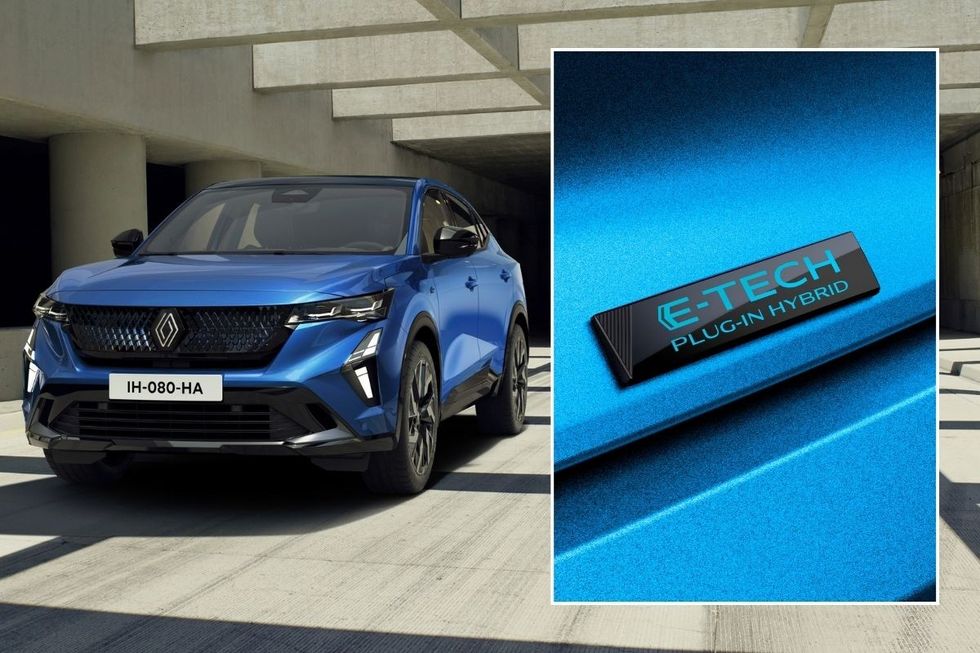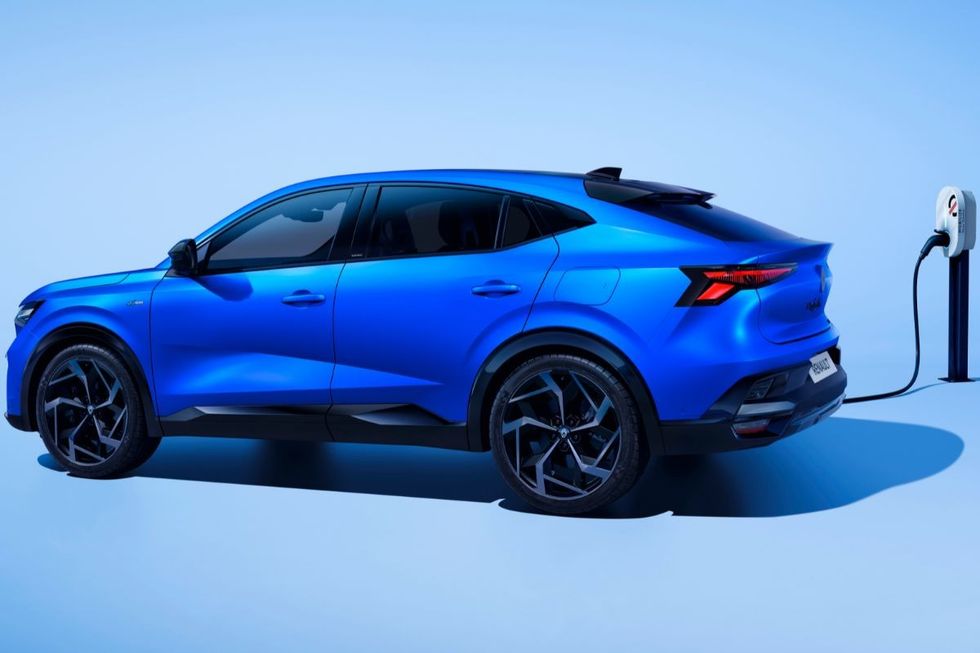One of the best-selling brands in the world has revealed it will not expand its plug-in hybrid (PHEV) offerings beyond its flagship model.
Renault has confirmed that it will not invest in plug-in hybrids further than its Rafale model, instead placing its bets on full-hybrid powertrains as the key stepping stone towards electric cars.
The strategy marks a stark contrast to rivals including BMW, Audi, Toyota, Volkswagen, Volvo and Stellantis, who continue to invest heavily in PHEV technology.
The French automaker’s decision reflects its assessment of the practical limitations of plug-in hybrids, with the company viewing full hybrids as a more effective way to transition customers towards eventual EV adoption.
Do you have a story you’d like to share? Get in touch by emailing[email protected]

The Renault Rafale plug-in hybrid is assumed to be the last PHEV from the French brand
RENAULT
Renault CEO Fabrice Cambolive explained the company’s strategic shift, stating: “What we decided is to bet on full hybrid, because for me that is the easiest way to have low-consumption cars and to prepare our customers to go to EVs.”
He highlighted how full hybrids provide an EV-like experience at low speeds without requiring plug-in charging, Autocar reported.
The decision came after careful consideration of various powertrain options. Cambolive added: “Three or four years ago it was not obvious, choosing between mild, full, plug-in hybrid or pure-EV – there were a lot of different ways to manage your engine line-up.”
The Rafale E-Tech 4×4 features an innovative PHEV powertrain that combines a 1.2-litre three-cylinder petrol engine with three electric motors – two for traction and one starter-generator in the gearbox.
The system delivers 66 miles of electric-only range from its 22kWh battery, whilst offering a total range of 600 miles when fully fuelled.
Cambolive praised the system’s efficiency, noting that “you don’t consume more [energy] when your battery is empty, which is, for me, one of the biggest problems of normal plug-in hybrid cars.”
Unlike conventional PHEVs, the Rafale maintains hybrid operation even with a depleted battery, making it what Cambolive calls “a plug-in hybrid, hybrid”.
Despite the Rafale’s innovative PHEV system, Renault has no plans to adapt this technology for other models in its lineup.
Cambolive explained that the decision largely comes down to vehicle size, saying: “When you go to the lower segments, if you can’t afford to charge the car, you have a full-hybrid solution, and it’s far enough. Otherwise, you shift to EV.
“You can put a big tank, you can put four ‘engines’ – but you need space to do that in a car, basically, and with some cars up to 4.4 metres, I don’t know if it’s worth it.”
Until 2021, Renault offered PHEV versions of the Megane and Captur, but has since determined that plug-in hybrids no longer make sense for smaller vehicles.
Looking ahead, Renault’s strategy emphasises increasing hybridisation across its range, particularly in the B-segment where its popular Clio sits.
LATEST DEVELOPMENTS:

Renault will be releasing the next generation of Clio models next year
RENAULT
Cambolive indicated that hybridising smaller cars “is becoming more interesting each time” as battery costs decrease and tax penalties on pure combustion engines rise.
The future of pure petrol engines in Renault’s lineup remains uncertain, particularly for the next-generation Clio due in 2026.